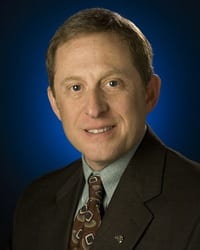UCF Science Café Relates Sharks, Space, and Stress
Here’s something that sharks, space and student stress all have in common: They can all be scientifically examined through communication.
Attendees found out how linguistic analysis links all of these otherwise unrelated topics Thursday, November 5th, when the College of Sciences held its third Science Café of the semester.
The series of talks began in September, and have since allowed individuals to learn about a variety of topics in many fields of science, including political sciences, biology, health sciences, cosmology and sociology.
Thursday’s talk featured Lindsay Neuberger, Ph.D., an assistant professor of human communication at the Nicholson School of Communication, who talked about the scientific examination of communication in a presentation entitled, “What We Say Matters: Sharks, Space and Student Stress.”
Neuberger discussed a scientific examination of communication through linguistic analysis, which entails categorizing words into meaningful groups and looking at the frequency of certain words. This information can then give us insight into our health and increase our quality of life.
“The end goal of all of this is to protect human life,” Neuberger said in her speech. “And that’s a pretty good goal to have.”
Throughout the talk, she explained how using linguistic-analysis tools, such as the Linguistic Inquirer and Word Count program, helps categorize words into data that can then be used in a variety of different fields.
Neuberger utilized LIWC to research the language used by shark-diving websites, which led to her building a lexicon dictionary of different emotions, which was picked up by NASA to help research the emotional strain and stress of their astronauts during training.
Now, the research is being applied to medical students with the goal of improving their interactions with standardized, or practice, patients.
Tom Briggs, the director of Environmental Health and Safety, which helps sponsor the Science Café, said that talks like these provide an important resource for not only students or faculty, but for the community as a whole.
“That’s what this is,” Briggs said. “It’s the university coming together to educate the community.”
Julie Donnelly, a chemistry grad student and president of the Uknighted Chemistry Graduate Association, which helps to organize the talks, said that the Science Café allows people to see a different side to science.
“I think it’s a really good opportunity for people to talk about science, but in a more relaxing environment,” she said. “The talks are engaging; it’s not boring, it’s fun.”
Final Talk of the Fall 2015 Science Café series:
 On Thursday, December 10th, join Alan Stern, Ph.D., as he presents his first-hand experience as the principal investigator for NASA’s historic New Horizons mission to Pluto.
On Thursday, December 10th, join Alan Stern, Ph.D., as he presents his first-hand experience as the principal investigator for NASA’s historic New Horizons mission to Pluto.
Dr. Stern, who is working with the Southwest Research Institute on the New Horizons Project, will show images from the spacecraft as it made its closest approach to Pluto and its moons on July 14, 2015. The spacecraft is now headed farther into the Kuiper Belt to examine one or two of the ancient, icy mini-worlds in that vast region.
Join us, on Thursday, December 10, 2015 at 6:30 p.m., in the CSB 101 for networking, drinks and appetizers, with the talk beginning at 7:00 p.m. Click here to RSVP.
—–
Deanna Ferrante is a Senior Staff Writer and Watchdog Reporter for the Central Florida Future.
To read the original story click here.

